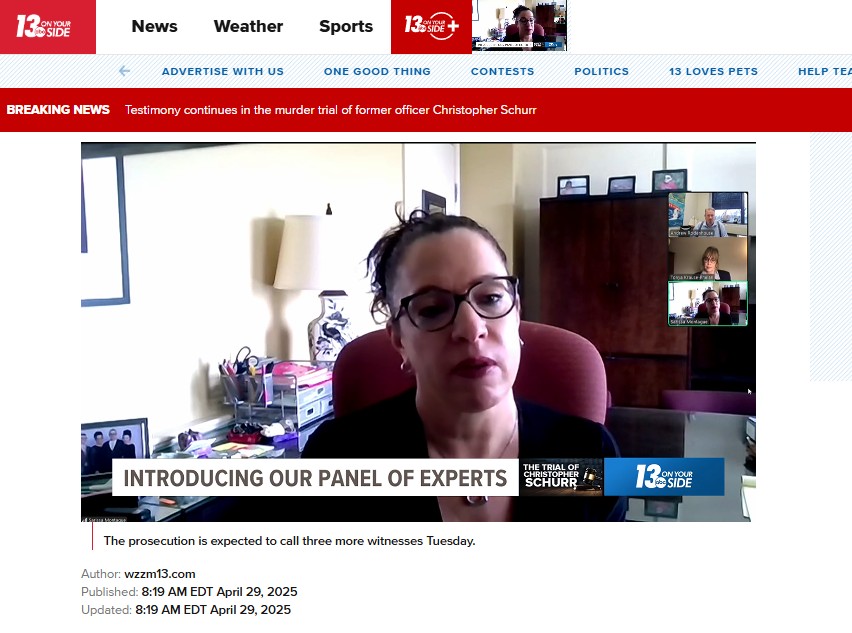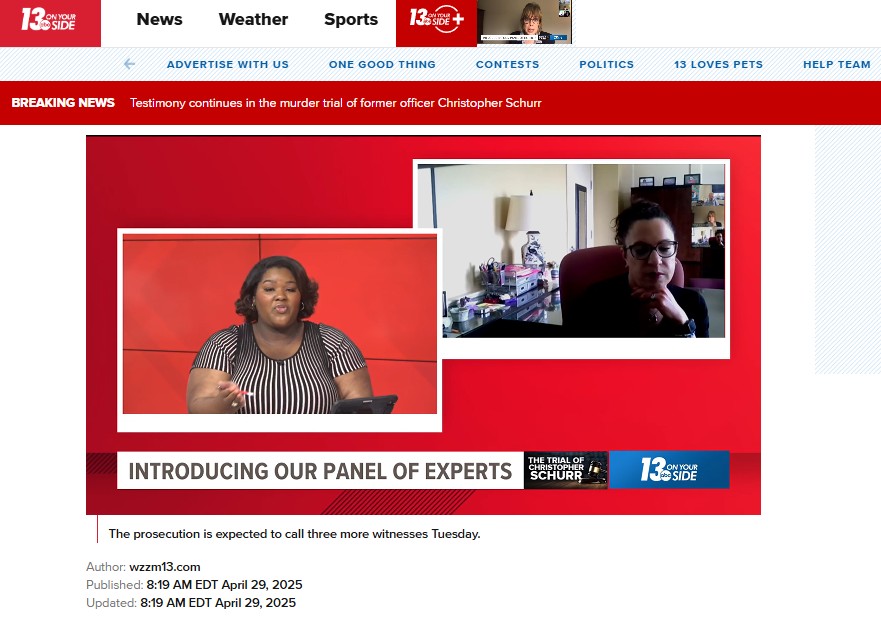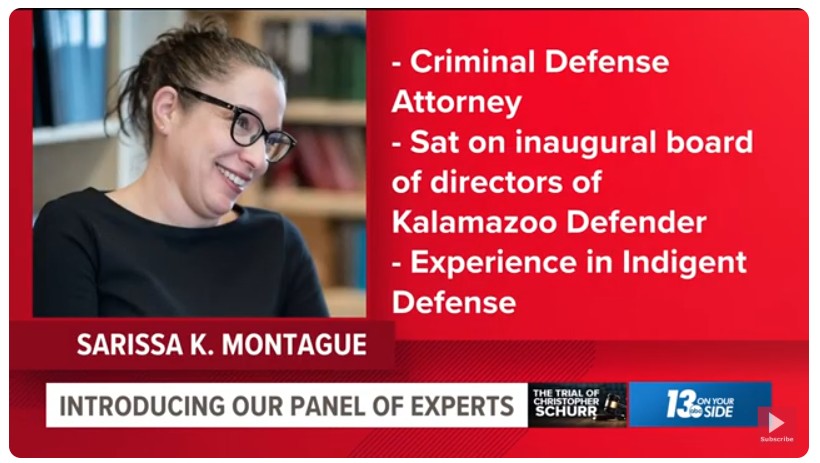
As the murder trial of former GRPD officer Christopher Schurr continued for the second day on Tuesday, April 29, Criminal Defense Attorney Sarissa Montague provided live legal expertise on WZZM 13 through its livestreaming digital platforms.
Schurr is charged with second-degree murder in connection to the shooting death of Patrick Lyoya in April 2022.
During the courtroom’s lunch recess on Tuesday, Montague participated as a panel expert during WZZM’s digital livestream.
“It’s fascinating as a practicing trial lawyer – but probably more for people who are watching this who don’t do this day in and day out – how important it is to phrase questions in particular ways because what they’re doing is trying to get a witness to say what you want the witness to say,” said Montague. “Crafting the proper question and addressing the proper topic is crucial. Witnesses aren’t allowed to just share the information that they want to share. They are only allowed to respond to the questions that are given to them. If you’re not careful in the way that you phrase something and the way you pose something, you very easily could miss the topic that you want someone testifying to; or the expert cannot have the opportunity to share the information that he or she has when they’re not asked the right questions.
WZZM: Keeping jurors engaged
“I think this morning (Tuesday) was a very good example of what it is when you get into the nitty gritty of questioning experts,” Montague explained. “Trials are not glamorous – it’s kind of boring.
“It’s hard because jurors are regular people … and that’s something attorneys need to be aware of and how to keep jurors engaged when you’re talking about how something functions because the points that are coming out nitty-gritty details, but they are so important. Doing a good job of that is super important when you’re in situations such as this one.
Montague continued: “It’s really hard … but as a trial lawyer you need to recognize that they’re not listening to every detail – they’re just not. So you try to get your big points out there to be supported then by the smaller points that make up the testimony. You hope that the jurors recognize even if it’s not really exciting testimony that they’re there to do a job and it’s their job at that point to listen to the information. I think, by and large, they do. You just hope that they do the job that they’ve been sworn in to do. In my experience most do take the job seriously. With this trial – a homicide trial – they realize this is a big deal and peoples’ futures are on the line and that they’re doing the job that they’re supposed to do.”
WZZM: Should a defendant testify?
“You need the jury to understand what is going on in the defendant’s mind at the time – that’s true in every case when you have self-defense, and another question is how do you get the jury to understand that the best way possible,” said Montague. “We usually advise against defendants testifying. However, you do need to be able to convey to a jury that a person honestly and reasonably believes that they needed to use the extent of force that they did. There are times when you can get to that information in a different way. … I have seen it go both ways.
“It’s a hard question. It’s ultimately up to Mr. Schurr if he wants to testify. It’s his right and only his right and only up to him to give up that right should he choose to do so. I’m sure it will be with the consultation of his attorneys and then they’ll make that decision together. But it is really a hard decision.”
Watch Sarissa Montague’s full interview, starting at the 4:30:00 mark: https://youtu.be/RjQpUGB0Vio



